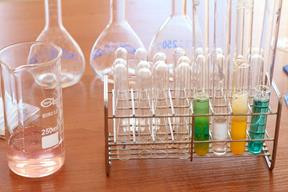Three Batangas State University students won the first World Engineering Day Hackathon on Friday, defeating 125 student teams from 23 nations around the world to commemorate Unesco's World Engineering Day for Sustainable Development.
Teams from the University of British Columbia Okanagan in Canada and Egerton University in Kenya took second and third place, respectively.
Ghia Luwalhati, Nicole Elizabeth Tan, and Reaner Jacqueline Bool make up Team Wonderpets (Water remediatiON using metal-organic framework DERived from PET bottleS), the only team from the Philippines to compete in the final round.
They are Chemical Engineering students supervised by Dr. Reymark Maalihan of the university's STEERHub's Material Testing and Calibration Center (MTCC).
The World Federation of Engineering Organizations (WFEO) under the auspices of Unesco asked Batangas State University to participate through its Center for Innovation in Engineering Education, the university's arm dedicated to improving the quality and responsiveness of engineering education.
The CIEE and MTCC, as well as the university's Analytical Research Center (ARC) and Center for Technopreneurship and Innovation (CTI), played a key role in bridging the gap between student organizations and university academics and specialists.
The WED Hackathon's goal was to demonstrate a sustainable engineering solution to a worldwide real-world problem.
"Water Accessibility in a Changing Climate" is the topic of discussion.
Team Wonderpets created a water pollution adsorbent based on a metal-organic framework that recycles terephthalic acid recovered from PET bottles chemically. The resulting material is exceptionally porous, cost-effective, and reusable, making it a long-term solution for water pollution removal.
"With the potentially disruptive technology, this entry was really exciting," said Dr. Marlene Kanga, immediate past president of the World Federation of Engineering Organizations (WFEO), as she revealed the winners during the WED 24HRS Live broadcast in San José, Costa Rica.
Because of its plastic-recycling component, Team Wonderpets' solution not only promotes the 2030 UN Sustainable Development Goal (SDG) 6: Clean Water and Sanitation for All, but also SDG 12: Responsible Consumption and Production.
The WED Hackathon entries were judged in the preliminary round by 40 engineers from 16 countries, and in the final round by six judges from Unesco, the International Federation of Engineering Education Societies, Engineers Without Borders, the Global Engineering Deans Council, International Network of Women Engineers and Scientists, and the International Engineering Alliance.
The World Federation of Engineering Organizations, in collaboration with its partners in the international engineering community and the Engineers Without Borders international network, organizes the WED Hackathon with Unesco support in order to stimulate the innovation of young engineers to deal with challenges.






